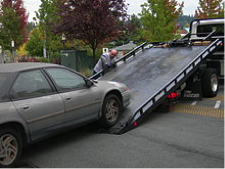
Most people don’t realize it until their car has been seized and towed away, but Tennessee law allows a POST certified officer to seize the vehicle used in the commission of a person’s second or subsequent conviction of DUI.1 The Tennessee Department of Safety and Homeland Security is the applicable agency that oversees these actions.
Prior to this new law2 that became effective July 1, 2025, a person contesting the forfeiture of their vehicle was required to file a bond with the Department of Safety in the amount of $350. See, Tennessee Code Ann. § 40-33-206(b) which was deleted in 2025. Currently, however, it is no longer necessary to file such a bond. The bond was used to pay for the costs of the proceeding in the event the claimant was unsuccessful in contesting the forfeiture. Claimants no longer have to pay a cash bond or file additional pleadings to assert ownership of seized property, making the process more accessible and fair.
In order to qualify for forfeiture, the conviction making the vehicle subject to seizure and forfeiture must occur in Tennessee and at least one (1) of the previous convictions must have occurred within five (5) years of the current conviction.3
Although forfeitures are not criminal actions for the purpose of Double Jeopardy, they are of course, punitive measures. The Tennessee legislature has attempted to avoid this potential argument by a claimant by including in the statute the intent of the law. “It is the specific intent that a forfeiture action under this section shall serve a remedial and not a punitive purpose. …”4
It is the hope of the author, and presumably that of the Tennessee legislature, that more citizens will be able to contest a wrongful vehicle forfeiture now that there is no requirement to post a bond. These matters can become quite complicated and time-consuming. The proper documents requesting a hearing and stating the person’s interest in the seized property must be made in a very short period of time.5 It is critical to retain a knowledgeable and experienced DUI defense lawyer to help the claimant navigate through the administrative procedures in order to successfully retrieve their vehicle.
- Tennessee Code Ann. § 55-10-414. ↩︎
- Tennessee Code Ann. § 40-33-206. ↩︎
- Tennessee Code Ann. § 55-10-414(b). ↩︎
- Tennessee Code Ann. § 55-10-414(c). ↩︎
- Tennessee Code Ann. § 40-33-206(a). ↩︎
About the Author: Steven Oberman has been licensed in Tennessee since 1980, and successfully defended over 2,500 DUI defendants. Steve was the first lawyer in Tennessee to be Board Certified as a DUI Defense Specialist by the National College for DUI Defense, Inc. (NCDD). Among the many honors bestowed upon him, Steve has served as Dean of the NCDD and currently serves as chair of the National Association of Criminal Defense Lawyers DUI Committee.
He is the author of DUI: The Crime & Consequences in Tennessee, updated annually since 1991 (Thomson-West), and co-author with Lawrence Taylor (1942 – 2023) of the national treatise, Drunk Driving Defense, 9th edition (Wolters Kluwer/Aspen). Steve has served as an adjunct professor at the University of Tennessee Law School since 1993 and has received a number of prestigious awards for his faculty contributions. He is a popular international speaker, having spoken at legal seminars in 30 states, the District of Columbia and 10 foreign countries. After being named a Fulbright Scholar, Steve was honored to teach as a Visiting Professor at the University of Latvia Faculty of Law (Law School) in the capital city of Riga, Latvia for a semester during 2019. In 2023, Steve accepted an offer to teach for a semester as a Visiting Professor at Eötvös Loránd University Faculty of Law in Budapest, Hungary. Steve was designated a Fulbright Scholar for a second time and taught American Criminal Law and American Trial Advocacy at The University of Ljubljana Faculty of Law in the capital city of Ljubljana, Slovenia for the 2024 spring semester. Since then, Steve taught American Trial Advocacy to Masters Students in Criminal and Criminal Procedure Law for the Winter Semester in 2025 at the Universidad Carlos III de Madrid Faculty of Law in Madrid, Spain. If you would like to contact the author, please visit his website at www.tndui.com.